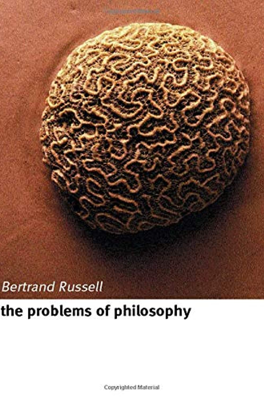Knowledge by Acquaintance and Knowledge by Description
Types of Knowledge: Acquaintance and Description
Bertrand Russell differentiates between two types of knowledge of things: knowledge by acquaintance and knowledge by description. Knowledge by acquaintance is direct and does not require inference or knowledge of truths, such as being directly aware of the colors, shapes, and textures of a table. In contrast, knowledge by description involves knowing something indirectly through descriptions linked to truths, such as knowing of an object's existence without direct observation.
Acquaintance with Immediate and Abstract Entities
Russell specifies that we are directly acquainted with our immediate sensory experiences, or "sense-data", which include the immediate perceptions of colors, sounds, and textures. Beyond these, we are also acquainted with our memories and the processes within our own minds through introspection, like being aware of our own thoughts, desires, and feelings. Russell also considers whether we are acquainted with the 'self', suggesting we might have some form of acquaintance with what observes or experiences these sense-data and mental processes, although this is less clear.
Knowledge by Description and its Construction
Knowledge by description allows us to know of things we have never directly experienced. This form of knowledge is derived from understanding truths about descriptions that correspond to objects or persons. Russell gives the example of "the first Chancellor of the German Empire," a description likely referring to Bismarck, which allows us to think and make judgments about Bismarck without ever having met him.
Descriptive Knowledge’s Dependence on Acquaintance
Relying on descriptions requires an underlying acquaintance with some aspects of the described entities, typically through sensory experience or testimonial accounts. Russell points out that all meaningful propositions about unfamiliar entities, like historical figures or remote locations, must connect in some way to things with which we are personally acquainted, even if it is just the words or symbols used in the description.
Universals and Concepts
In addition to particulars, Russell discusses our acquaintance with "universals" or general ideas such as whiteness or brotherhood. These universals are not tied to direct sensory acquaintance but are instead abstract concepts that we understand and can mentally manipulate.
Conclusively Bridging Acquaintance and Description
Russell concludes that while much of our knowledge involves entities not directly known to us through acquaintance, it is built on a foundation of direct experiences or the manipulation of concepts with which we are directly familiar. This framework correlates even indirect knowledge to a direct acquaintance base, ensuring that despite the complexity and indirect nature of much human knowledge, it remains fundamentally grounded in firsthand experiences or universally understood concepts, making communication and understanding possible.
